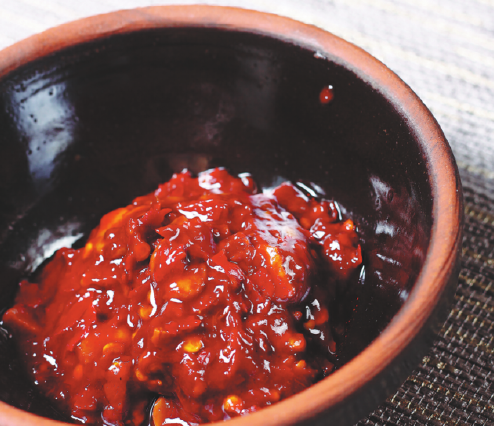The mighty broad bean


Boiled broad beans are so popular that they have become a literary classic.
Revolutionary writer Lu Xun's most recognizable book character is a down-and-out Confucian scholar by the name of Kong Yiji. He is a misfit of the times, trained in obsolete classics that are despised by the masters of modern China. He can only hang around the tea houses, fawning on the new trendsetters. And often, all he can afford to eat is a little plate of huixiangdou, fennel-flavored broad beans.
In Shaoxing, Zhejiang province, these boiled broad beans are standard fare in restaurants and teahouses, and Lu Xun drew from his hometown memories to immortalize them in his books.
Their name comes from the fennel tops that are boiled together with the beans to give them that distinctive fragrance.
The Chinese love broad-bean snacks and they are baked, dried and seasoned with all sorts of spices. Some of the more popular ones are hard-baked beans with their skins on, which are as beloved as melon seeds during lazy afternoons under the plane trees in the Beijing hutong (alleys).
Younger Chinese are just as fond of broad beans, although they are more likely to favor them deep-fried and coated in salted egg yolk and eaten while they browse their latest news feed.
Fresh broad beans are also podded, skinned and used in many stir-fries, especially when they are in season.
Broad beans are known in the West as fava beans. Fans of author Thomas Harris will surely remember Hannibal Lecter's famous meal in The Silence of the Lambs, which featured baby fava beans prominently-among other culinary delights.
Broad beans are used in Chinese cuisine as a vegetable, but they are also a seasoning. The famous Sichuan hot bean paste, doubanjiang, uses broad beans as a crucial ingredient.
The best broad beans are cooked down and left to naturally ferment before they are added to vats of chili and garlic. Then time is allowed to work its magic and fuse the beans and spices together to become hot bean paste, the soul of Sichuan cuisine.
It is not quite a salty bean sauce and not quite a chili sauce, but its unique depth of flavor adds character to the heat of Sichuan dishes.
Pixian Doubanjiang is famous all over the country, and a true-blue Sichuan chef will only use hot bean paste made here.
My husband's favorite broad bean dish, however, is an old Beijing classic. Tender young beans are peeled and then stir-fried with pickled mustard greens, xuelihong. The deep green and tangy saltiness of the pickled vegetable is the perfect foil for the sweet, jadegreen beans. There's no meat in here, just the fresh taste of spring.
Contact the writer at [email protected]




































